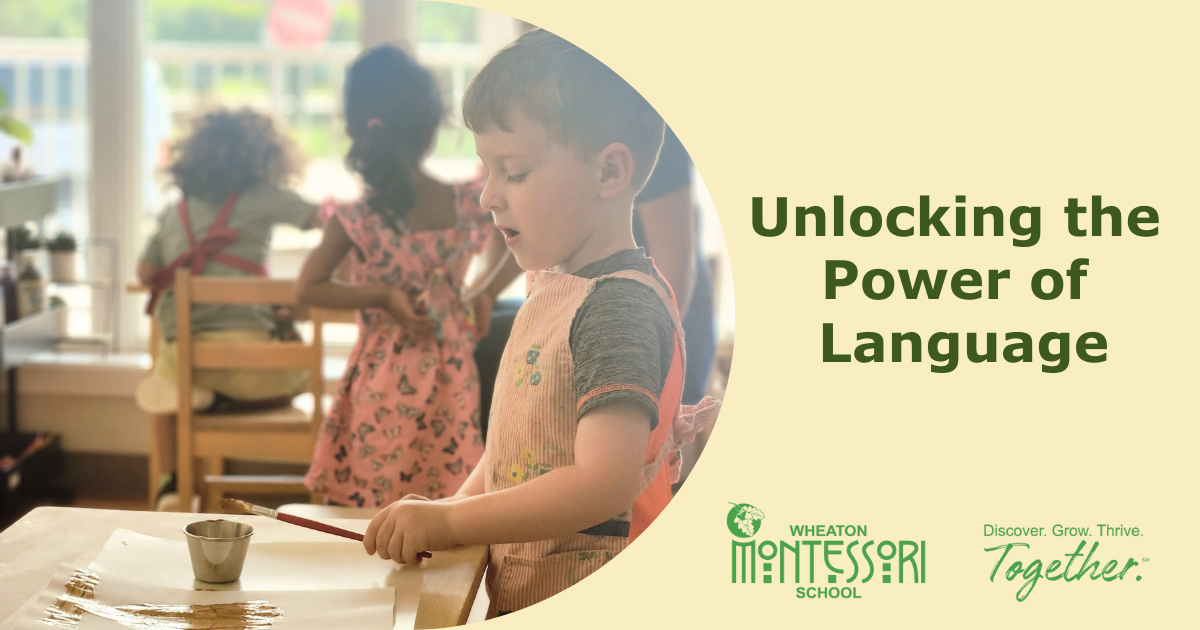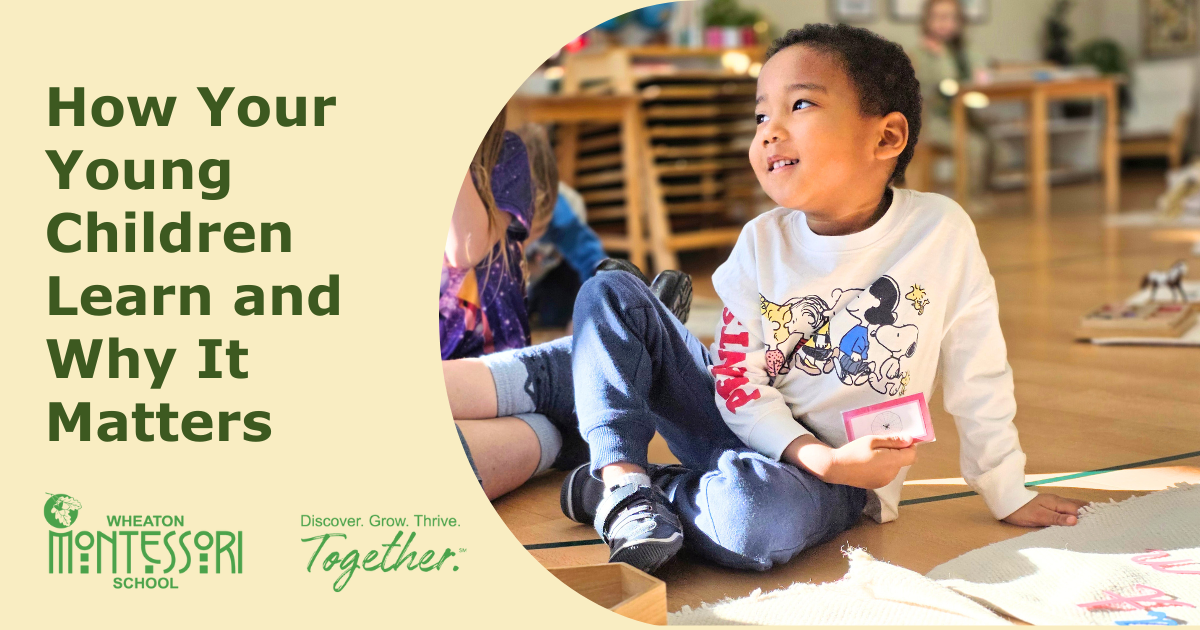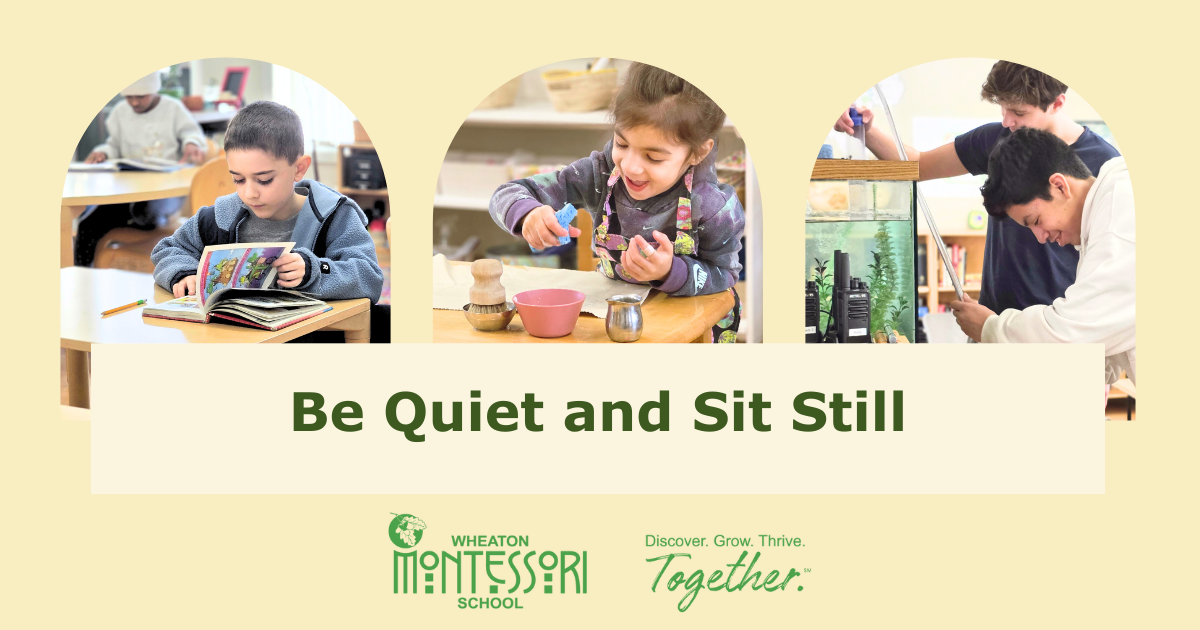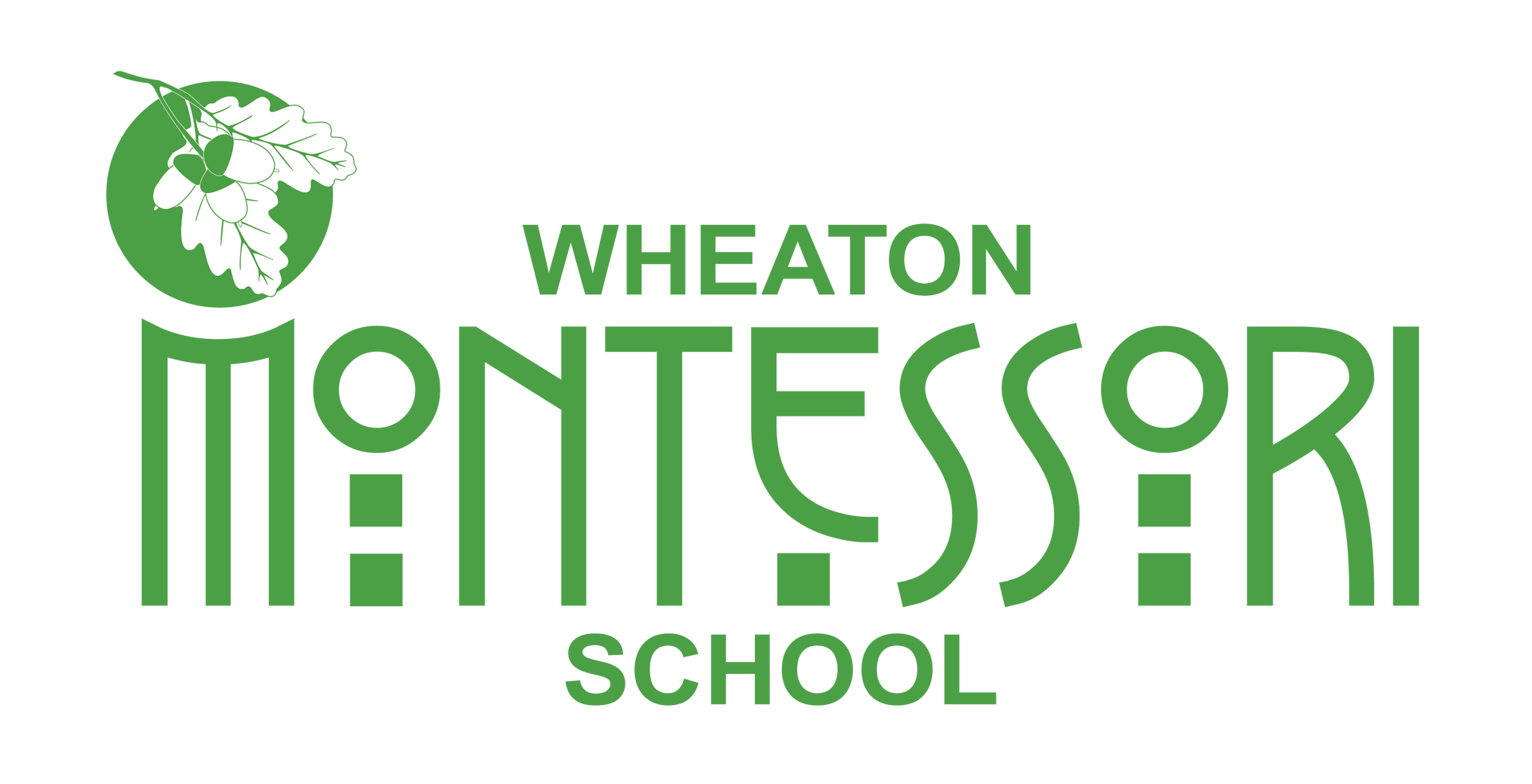
Wheaton Montessori School’s teachers implement structured, phonics-based, multi-sensory, and sequential reading instruction. In our preschool and kindergarten classrooms, one way we support young children’s deeper understanding and joy in reading is through activities called Function of the Word exercises.
At first glance, these exercises may appear to be grammar lessons, but they serve a deeper purpose. They are reading activities designed to help children explore how language works and to do so in a joyful, hands-on, developmentally appropriate way, backed by the science of reading.
Why Do These Exercises Matter?
4½ and 5-year-olds begin experimenting with grammar, word order, and expression. The Function of the Word exercises tap into this innate curiosity by offering playful and engaging opportunities to explore how words function within a sentence.
These lessons are full of movement and drama. A child reads “skip and sing a song” and acts it out. They giggle while actively building the foundation for what we call “total reading.” Imagine what verbs your child will want to read and dramatize!
From Decoding to Total Reading
Authentic Montessori schools guide young children beyond simply decoding words on a page. Our goal is to help them reach total reading—a stage where they not only recognize words but truly understand and interpret the meaning behind them.
Total reading involves:
- Comprehending the author’s intent
- Recognizing emotions and tone
- Grasping the overall message or theme
It’s the integration of all components of reading—decoding, fluency, vocabulary, and comprehension—that allows children to connect deeply with text and engage with ideas on a meaningful level. Total reading is about more than reading what is written—it's about understanding.
From Words to Sentences: A Natural Progression
The Function of the Word exercises provide children with increasingly longer phrases at each individual’s pace. A sample Noun Family progression could be:
- 1 word (noun): horse
- 2 words (noun and article): the horse
- 3 words (noun, article, adjective): the brown horse
- Phrase (with conjunction): the brown horse and the spotted cow
- Phrase (with preposition): the brown horse and the spotted cow in the pasture
The best part is that as children read these words and phrases, they find the figurines to set up the scene.
Example exercises of the Verb Family:
- 1 word sentence (verb): gallop
- Short sentence (verb and adverb): gallop swiftly
Children love experiencing how verbs bring life to a sentence! They act out the sentences and delight in experimenting with how adverbs change the action.
Through this kind of progression, children begin to understand how words relate to each other and build on each other to create meaning.
Making Language Visual and Hands-On
In authentic Montessori schools, we also use symbols to represent each part of speech. Using color-coded symbols provides children with a sensorial impression of the different functions of words and how they relate to each other. Children also begin to visually identify syntactical patterns.
- Noun: large black triangle
- Article: small light blue triangle
- Adjective: medium blue triangle
- Conjunction: pink bar
- Preposition: green crescent
- Verb: large red circle
- Adverb: small orange circle
Using these symbols, children can build and manipulate sentences. They play games where they switch the order of words to explore how syntax changes meaning. Imagine the giggles when children realize how different “the farmer on the horse” is from “the horse on the farmer”!
Spoken Language Games
Before reading and symbol work, each function is introduced through spoken games. Here are a few examples children have watched friends have lessons on:
- Article Game: Ask your child for “the ball” (a specific one) or “a ball” (any ball). See if they can tell the difference!
- Adjective Game: Ask for “the pencil,” but don’t specify which one. Then say, “I meant the red pencil, but I didn’t say red. How did you know?”
- Conjunction Game: Name a group of objects using “and,” such as “a spoon, a cup, and a plate.” Play around with omitting the conjunction.
- Preposition Game: Use simple commands like, “Put your hands behind your back” or “Put the napkin under your legs.”
- Verb and Adverb Game: Give playful commands like “Jump quickly,” “Walk slowly to the door,” or even a three-part task: “Say hello to your teddy bear, hop to the kitchen, and touch the blue chair.”
These games can be fun time-fillers while waiting for others, an appointment, or your turn in line. Plus, they help children internalize the beauty and power of language in meaningful, developmentally aligned ways.
A Joyful Journey Toward Literacy
It’s important to note that in the preschool years, we don’t introduce children to grammatical terms (this comes in first grade at Wheaton Montessori School!). The goal isn’t to memorize parts of speech, but to explore language playfully and deeply. Through repeated, engaging, and sensorial experiences, children begin to read with understanding, emotion, and appreciation.
Campus Visits to Experience the Foundation for Lifelong Literacy
Schedule a visit to Wheaton Montessori School, the only internationally accredited Montessori school in Illinois that serves children from preschool through freshman year of high school. This is where we discover, grow, and thrive together.
- Current Families:
Classroom observations begin in mid-October!
Curious about what’s next for your young readers? It’s never too early to peek into your child’s next adventure. Ready to level up? Let us know when you'd like to visit!
- Alumni: We invite you to reconnect with your former teachers and classrooms through email, social media, or in person!
- Prospective Families: Explore our campus and connect with our highly specialized teachers, who guide and inspire young people to love reading. We invite you to schedule a tour today!


